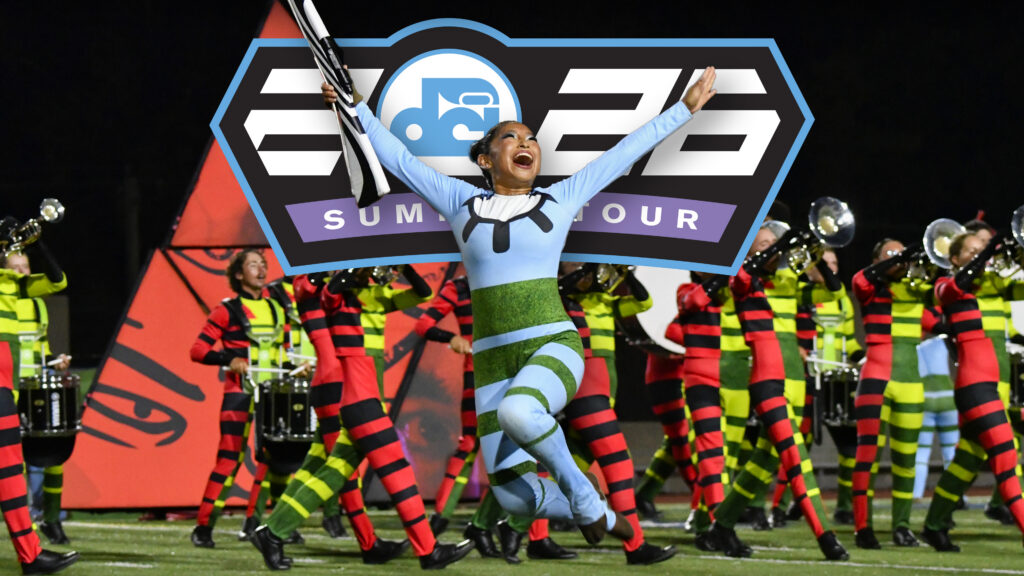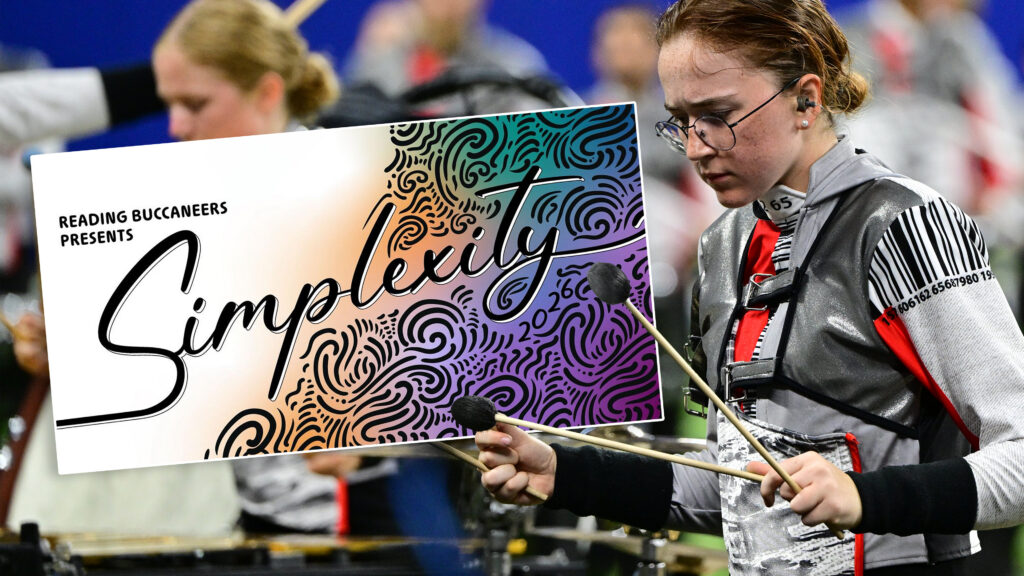We last heard from Karla E. Marquez, a former member of Impulse, in the Fanfare column of Nov. 19, 2004, “Learning About the Past.” Since then, she aged out from Mandarins. First is her story about aging out, followed by some questions she asked about life after drum corps, concluding with my personal suggestions to her and all drum corps ageouts. It’s been a few months since the ageout ceremony, but I never had time to think about it. I had a crazy season full of accidents, two hospital visits, emotional moments on- and off-the-field, and the worst; a delay in my bus trip back home. I arrived home at 6 a.m. Monday morning after traveling all Sunday to Sacramento and then all night and morning to Los Angeles. My first class was at 8 a.m., so, because of the hurry to get home, a full school load of 20 units, student government, clubs and transfer applications, I had not taken time to think about what aging out meant to me. I’ve now taken time to reflect on what I’ve done this past year. There have been so many memories that will stay with me, but there’s a collection of memories—culminating with one final Greyhound bus ride—that have led me to understand one of the ways that drum corps changed my life. I was scared the first time I rode the bus up to Mandarins, as there seemed to be some “shady” figures riding the bus. The freeway went through downtown Los Angeles. As we started to pull out of the city, I saw the huge, modern downtown Cathedral, with large windows and angels along the side. It was a beautiful sight. That night as I left, I prayed for a safe ride to Sacramento and to have the strength and motivation to finish what I started. When I returned from that first trip, I saw those same angels welcoming me back home. With the way the freeway is set up in that area, it was as though the angels were opening the concrete freeway walls so I could get home safe. I prayed again, giving thanks for having the opportunity to do what I loved. I did this every time I left L.A. and every time I returned. On my final ride into the city, I got really emotional and started to cry. The season had been a long one: I was away from home longer than usual, missed the family reunion (first and only) for my sister’s 15th birthday, was broke and completely tired. But, I had made it through, and my final performance was awesome! It has been months since that ride home, but I have not been the same person since. I feel wiser, stronger, and even smarter—and yes, I know there’s still a lot more to learn about life. But it wasn’t my departure from home nor the destination to which I was headed which changed me. It was the road. Those once “shady” Greyhound characters had become lighthouses whose stories gave me a lot to think about, and guided me toward making better life decisions. Whether it was a sad story, or a story of success, they all seemed to have entered my life at a moment when I needed help. I hope that as many corps members start making the same types of trips I did, that they take time to reflect on what they have done, what they’re doing, and what they will do in the future. Performing and being in the corps was only half of the experience. What I learned from opening up and listening to those strangers around me become just as important. The following are the questions Karla asked about aging out. The past season was my last in junior drum corps. I had the privilege of marching with the Mandarins, and wow it was such an incredible experience. Talking about history, the moment I stepped into my first camp I got a feeling of—I don’t know how to describe it—family, tradition, pride, I guess. It was a combination of all those words and more. Well, those first five minutes in camp were enough to make me realize that I had found my place and was willing to age out with the organization. “Ageout,” that term gave me chills. I have a question for you: As your ageout season began, did it feel different? Did you feel nervous? Were you happy? Were you sad? I get so nervous about it that sometimes it distracts me from schoolwork. Being a distracted student in the chemistry lab is not a good thing. How was life after aging out? What did you do with your summers? I’d ask people I know but I feel a little crazy. I’m sure it sounds strange that I’m so preoccupied with the subject, but hey, you only age out once. Maybe if you addressed this subject in a future column it could really help all those people who have had ageout jitters like I do. -Karla And here’s my response to Karla and all members about to graduate in a few weeks or whom have already done so in recent years. Karla: I’m not sure if I could put all my feelings about aging out in one column. It was surreal, traumatic, brought relief, joy, sadness, made me feel up, made me feel down … get the picture? The emotions were quite contradictory. Now, it was likely different for me than most because I graduated from college three months before I aged out, whereas most age out and then go back to college. The way most experience it has got to be better. I had to search for a job while touring with the Cavaliers. It wasn’t easy and I didn’t get a teaching job until after tour was over. I strongly encourage you not to look at aging out as the end of something, but the beginning of a new chapter of your life. I also encourage you—as you’re the only one who ever brought up this subject to me—to write about it. [NOTE: This advice precipitated the column at the top of this page.] Write about your concerns, your fears, your gratitude that you’ve had this experience, your wish that more would have it. Write about how it was what you expected and how it was totally different than what you expected. Everyone experiences it differently. [I would give this advice to anyone in a corps uniform.] Please think about that. I think your writing about it could bring comfort to some going through the same experience. I can tell you that after aging out, I had drum corps dreams for about a year afterward. Once, the DCI World Championships were being held in my basement, once Cavaliers stopped by to change for a parade in my bedroom, once I was on the starting line and realized I had no idea what the music and drill was. However, there was one thing that “cured” me, and I’m going to practically insist that you do it, likewise. Without a doubt, make plans now, put it on your calendar, save up your pennies, do whatever it takes to go to the DCI World Championships after you age out. I decided to do the same less than a week before the championships in Denver in 1978. It was almost a spur-of-the-moment situation. I drove out, got tickets and watched prelims and finals. It was the best thing I could have ever done. It showed me that it was fun to be a spectator. Being a spectator and an observer eventually led me to what I’m doing now—sharing myself as a writer for the DCI yearbook, CD and DVD liner notes, show reviews, interviews and the big blessing, “Fanfare,” where I get to open it up to others. I’m more connected to drum corps now than I was for years after aging out, and I love it all. So, don’t despair. Grab the reality and turn it into your favor. There’s a lot you can do after marching. I strongly feel the best thing one can do to get over the sadness of no longer marching is to do something in drum corps for others. I write, some instruct, some volunteer. Give back to those coming up and you won’t have time to think about your own sadness. Now unleash something within yourself. Your contributions to drum corps don’t end when you age out. And if you don’t write, instruct or volunteer, contribute by sitting in the stands and clapping for all those on the field. I tell you, being a spectator is highly under-rated. God bless. -Mike
Michael Boo has been involved with drum and bugle corps since 1975, when he marched his first of three seasons with the Cavaliers.
He has a bachelor’s degree in music education and a master’s degree in music theory and composition.
He has written about the drum corps activity for over a quarter century for publications such as Drum Corps World, and presently is involved in a variety of projects for Drum Corps International, including souvenir program books, CD liner notes, DCI Update and Web articles, and other endeavors. Michael currently writes music for a variety of idioms, is a church handbell and vocal choir director, an assistant director of a community band, and a licensed Realtor in the state of Indiana. His other writing projects are for numerous publications, and he has published an honors-winning book on the history of figure skating. His hobbies include TaeKwonDo and hiking the Indiana Dunes. But more than anything, Michael is proud to love drum corps and to be a part of the activity in some small way, chronicling various facets of each season for the enjoyment of others.





